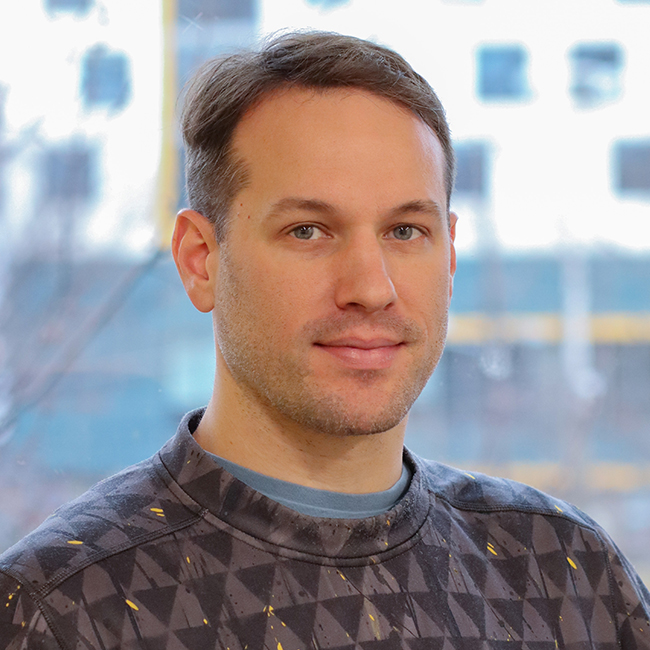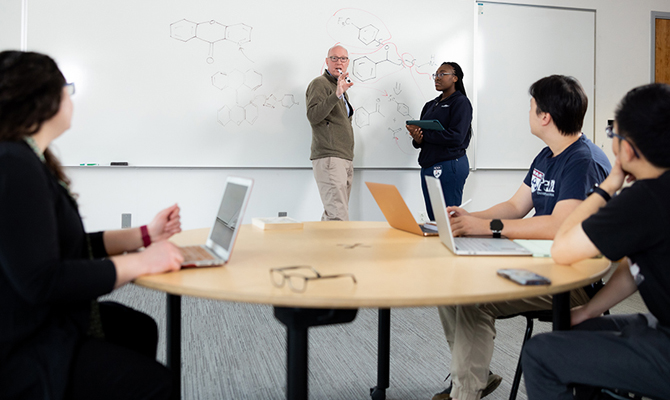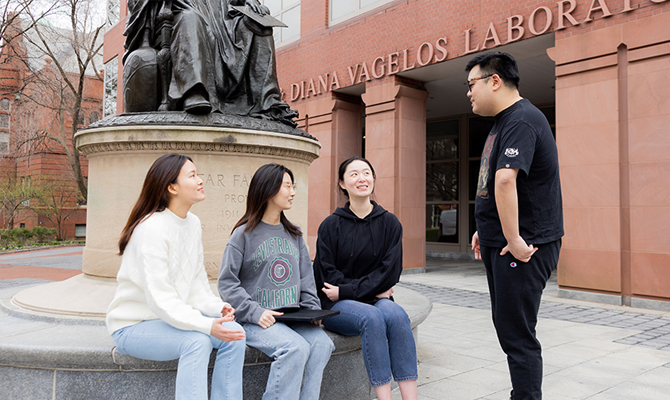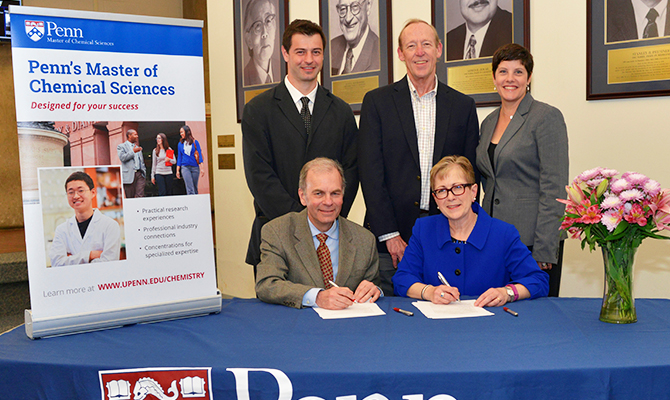
Biological Chemistry
Research Specialist, Clinical Vector Core, University of Pennsylvania School of Medicine
Master of Chemical Sciences, University of Pennsylvania ’23
Bachelor of Science in Chemistry, University of Delaware ’06
Upon graduating college with a degree in chemistry, Aaron Brodsky conducted viral blood testing for the American Red Cross and then took a job creating generic pharmaceuticals. He now manufactures viral vectors for use in gene therapy—while also completing Penn’s Master of Chemical Sciences (MCS) program part time. Aaron chose the MCS program because he wanted to develop a broad knowledge base that would serve him well in his research career and position him for opportunities in industry later in life. He says that balancing school and work is demanding but refreshing. “On days when I go straight from class to work, it’s actually nice. After getting crammed with new information, work feels relaxing by comparison,” he laughs.
Aaron says his coursework is helping him to understand more of the chemistry behind the manufacturing processes that he uses at work, for example, “how the viruses interact with the substances we use to preserve them.” He says his advisor has been a pivotal part of his experience in the program. “She's helped guide me in the right direction and stay positive when the coursework has gotten challenging. It’s a supportive culture, it’s not ‘sink or swim,’ and that has made a huge difference for me,” he says.
For his culminating capstone project, Aaron is optimizing an important processing step in viral manufacturing called tangential flow filtration (TFF). Gene therapy viruses are grown in cells and then pumped through a filter with tiny pores (approximately 20 mm) to remove water and other particles and deliver a concentrated product. “Our filtration step hasn't had any studies done on it, so the goal of my research is to find the optimal speed and pressure for pumping the solution through the filter to minimize the loss of viruses and maintain their potency.” That would save time and money, and could potentially lower the cost of remarkable new treatments for cancer and other diseases.
Aaron’s supervisor and another senior colleague at work are helping him shape the project and apply research findings from the field of water purification. In the meantime, Aaron is preparing to start his last required course for the degree. He reflects, “It’s been fun. I’ve enjoyed all my classes and professors, so I feel lucky to be here.”






